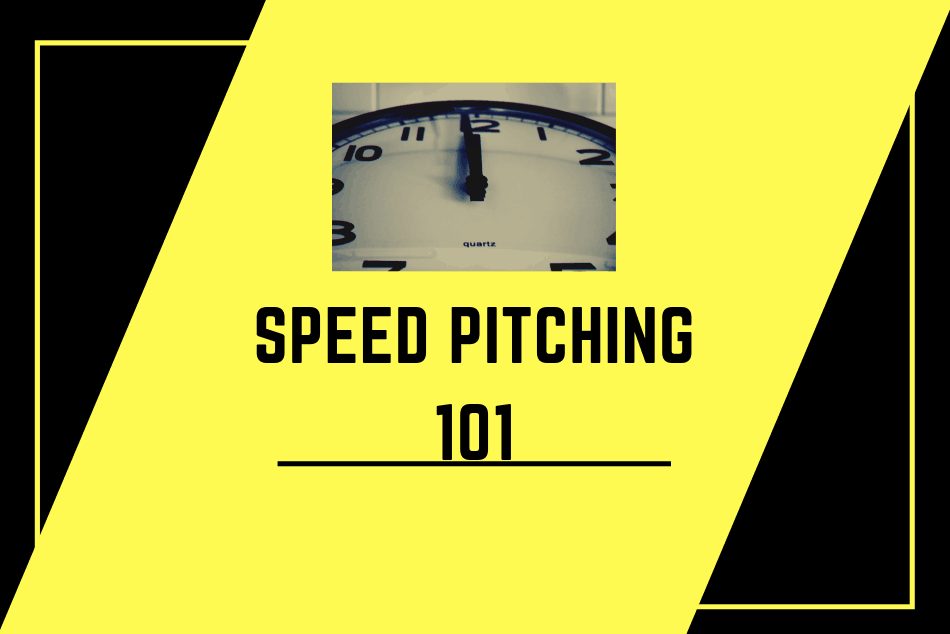You’ve heard of speed dating. Well, speed pitching is the same thing for writers. Only instead of landing your next romantic partner, you’re looking to land an agent or an editor.
The set-up is the same. Picture a big room packed with dozens of little tables, nervous writers, and patient publishing professionals. (Yes, patient, it takes patience to listen to 100 pitches in five hours’ time).
Two chairs a table, one for you, and one for the publishing professional who’ll hear your pitch and decide your fate. (Just kidding.) A loud buzzer, and a timekeeper with a mic telling you to move on when your three minutes are up.
As an agent, I do a lot of these pitch slams. (In fact, I’ll be at ThrillerFest this week doing PitchFest, and at Writers Digest Conference next month doing Pitch Slam. Maybe I’ll see you there.) Despite the pressure, I enjoy meeting writers and hearing pitches. It can be fun—for me and for you.
Speed Dating 101 Tips and Tricks
Here are some tips and tricks to making the most of your speed pitching experience:
Do your homework.
Check out the bios posted online or in your program; don’t bother with the agents and editors who don’t represent your kind of book. Even if we were interested in your project, we might not know how best to sell it.
Look professional and be friendly.
If you show up looking unclean and unkempt, you won’t look like the bestselling author you’d like to become. You may not be as chic as the fab Hank Philippi Ryan—who is?—but you don’t have to look like something the cat dragged in, either.
Also: Smile, and mean it. Act normal and nice. Don’t be creepy. (I had a stalker at a conference once. Seriously.)
Start with your elevator pitch.
You should be able to pitch your story in 50-100 words anytime, anywhere, to anyone. As in:
A Borrowing of Bones is a 90,000-word mystery in which a grieving female veteran and her traumatized war dog discover an abandoned baby near a shallow grave in the Vermont wilderness and join forces with a game warden and his search-and-rescue dog in a race to find the baby’s mother, solve the murder(s), and thwart a deadly Fourth of July plot.
Note: Know your word count. And don’t say it’s over 100,000 words. If it is, cut it.
Focus on selling points and comparable titles.
Where does your book go on the shelf? What makes your book different from the competition? What is your competition? These are the questions you should be able to answer, pronto, when we ask. And we will ask.
If you’ve got writing credits, let us know.
If you’re a journalist or blogger or nonfiction author, tell us. Ditto for anything in your personal or professional life that informs your work. Like, I’m a homicide detective writing police procedurals. Or, I’m a pastry chef writing romance heavy on love and sex and food.
Don’t spend all your time talking.
You’ve paid good money to hear the pros weigh in on your project. Besides, the fastest way to put us off is to challenge everything we say. The writers who get published are the ones who listen to constructive criticism, and revise accordingly.
Prepare a few questions about the business.
Anything you want to know—do you think my title works, is this sub-genre overpublished, what’s selling in this category these days, etc.—now’s your chance to ask and receive an informed response.
Don’t pass out books, manuscripts, flash drives, etc.
If we want to see your work, we’ll ask to see it. No one wants to drag along any more stuff than necessary on the bus or train or plane ride home.
Try to have fun!
Even once you’re published, the pitching never ends. Get good at it; get comfortable talking to publishing professionals of all kinds. It’ll do you—and your career as a Career Author—good. Not to mention you’ll meet some swell people, maybe even moi.
One last thing
If you’re at a conference, the best place to meet agents and editors is the bar. No pitching, just networking. But if someone asks….
For more pitching chatter, join us on Facebook.





